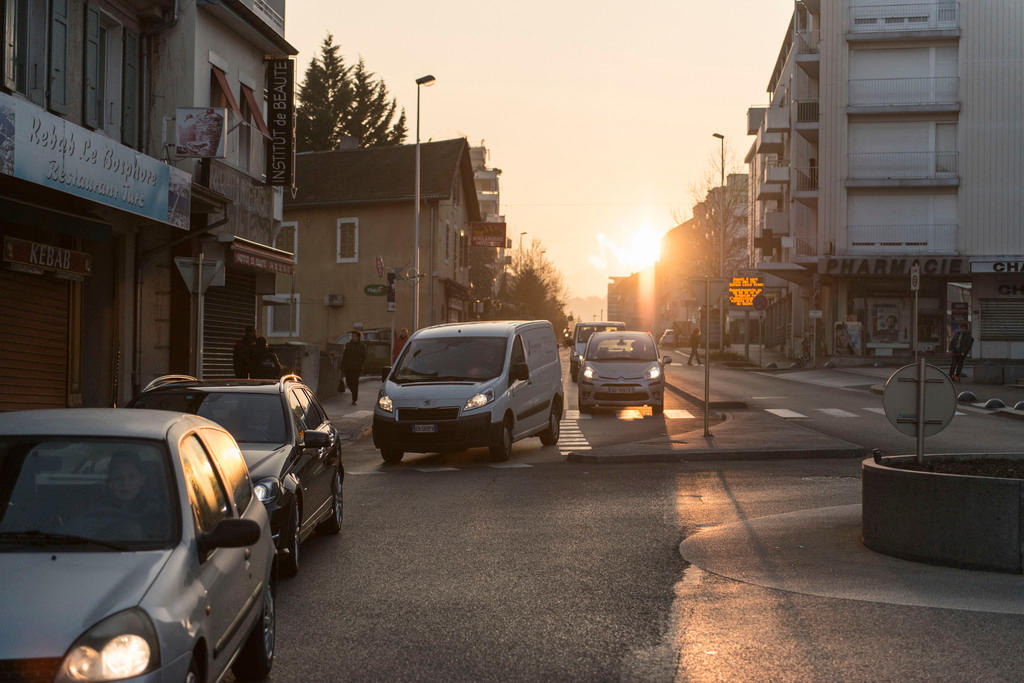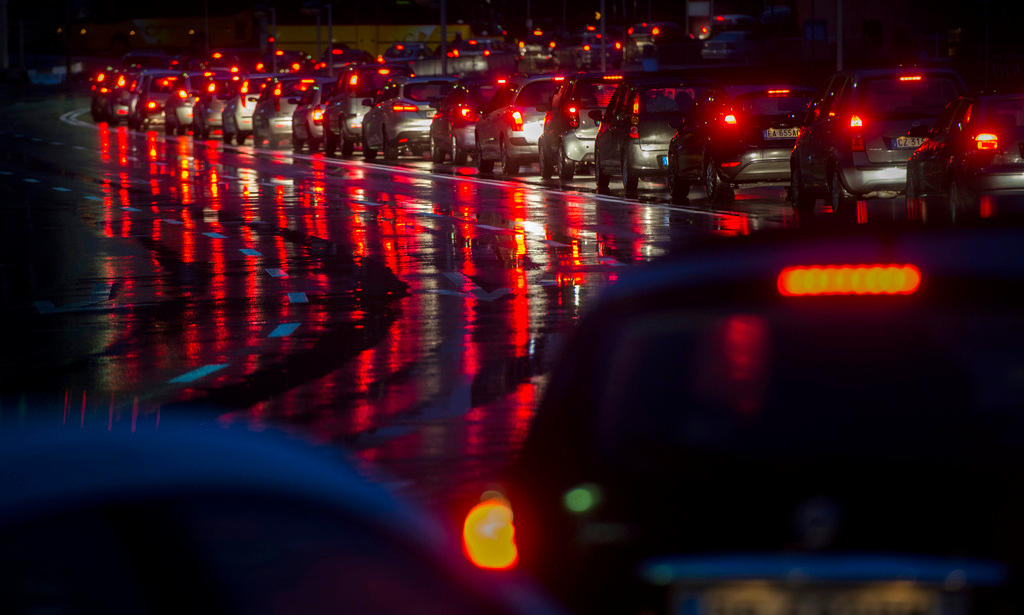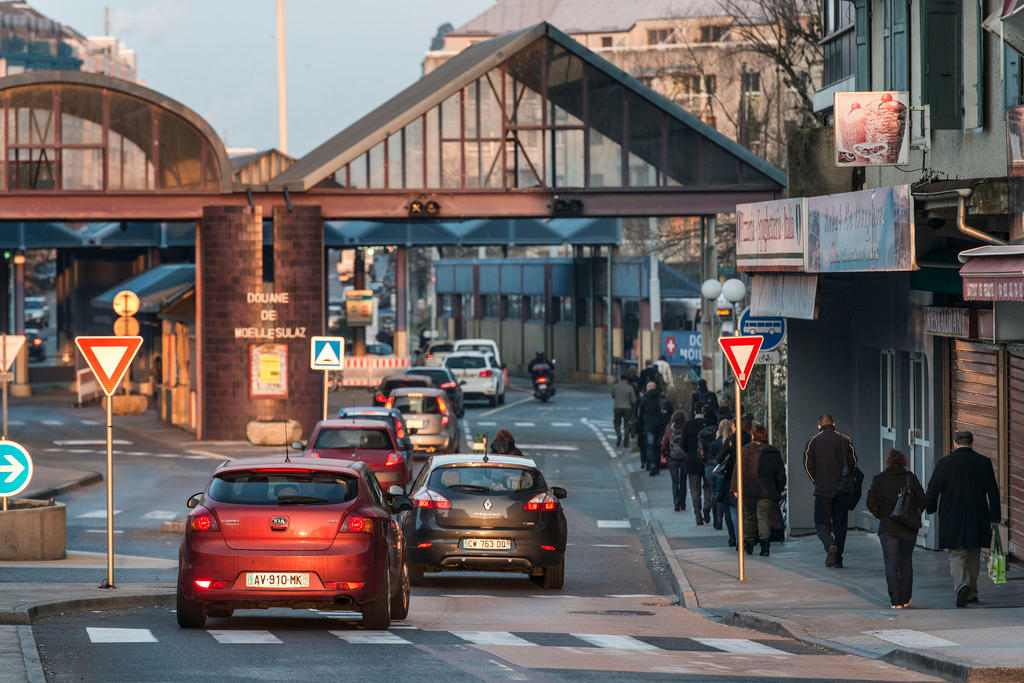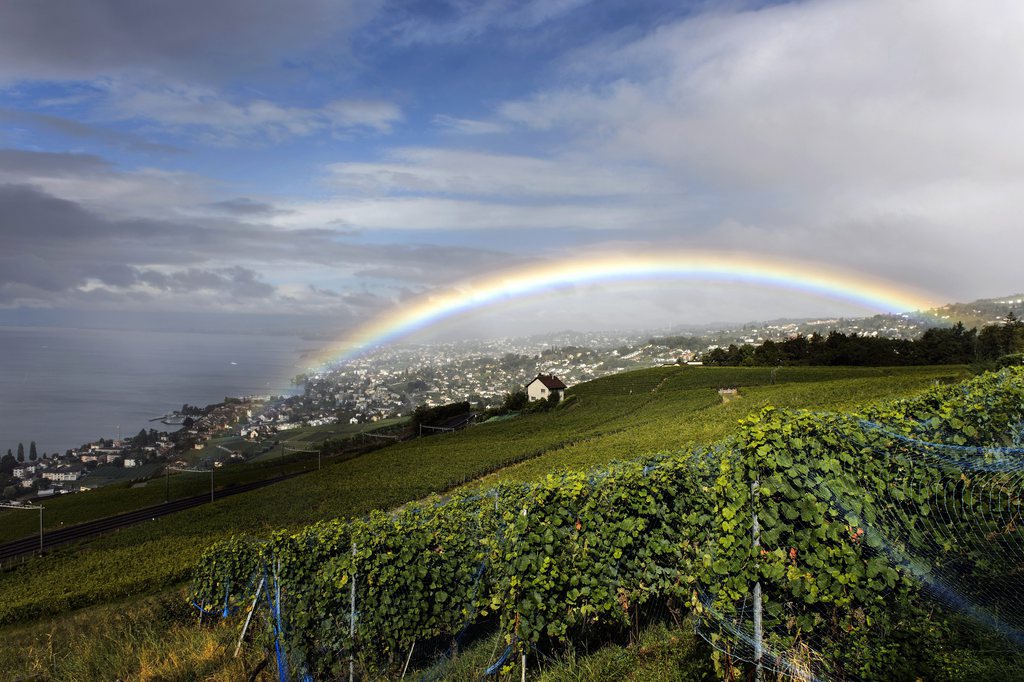French communes step up fight against ‘false’ secondary residents

French communes bordering Geneva are stepping up their search for so-called “false residents” – around 20,000 undeclared Swiss, who allegedly pretend to live in Switzerland to avoid paying tax in France.
The Swiss public broadcaster, RTS, reported on FridayExternal link that the French commune of Saint-Julien-en-Genevois had recently sent a list of Swiss car number plates to the Geneva authorities to help track down false secondary residents living in neighbouring France. RTS said the commune wants to expand this list or to introduce systematic checks on false residents. The Geneva cantonal authorities told the broadcaster that more details were needed from the French authorities to handle such a request.
It is thought there are around 20,000 undeclared Swiss or “false residents” in French regions bordering Geneva – Swiss who live most of the year in French communes and work in Switzerland, but who declare their French home as a secondary residence and claim primary residence in Switzerland. These Swiss taxpayers living in France deprive the French communes where they live of tax revenue estimated at €22 million (CHF25.5 million or $27.5 million), according to Pole Metropolitain du Genevois Français, a French lobby group that is concerned about the issue.
At present, the state of Geneva deducts tax at source from the salaries of French residents who cross the border every day to work in Switzerland for higher wages. Two-thirds of this tax – or CHF1 billion ($1.1 billion) – is retained by Geneva, while the other third is paid to the French tax authorities to be split between French communes based on the number of cross-border residents registered in France.
Campaign
After taking part in a campaign last year urging “false residents” from Geneva to come clean, the mayor of Saint-Julien-en-GenevoiExternal links, Antoine Vielliard, now wants to track false residents from other Swiss cantons, RTS reported on Friday. It is estimated that around one third, or 7,000, come from other French-speaking cantons such as Vaud and Valais.
“This is not a witch hunt or a stigmatisation,” Gabriel Doublet, the mayor of the French commune of St-Cergues, told RTSExternal link. “We want to encourage people to regularise their situation and we are insisting that people take responsibility as citizens.”
Vielliard said the commune Saint-Julien-en-Genevois would welcome new arrivals. But he insisted that the fast-growing region and much-in-demand public services in French communes had to be properly funded, especially new bus lines, sports and cultural facilities, schools and nurseries.
He added that the agreement between France and Switzerland on the automatic exchange of tax information, which entered into force on January 1, 2018, was encouraging people to come forward.
Although French officials deny hunting Swiss citizens living in France, RTS reports a certain climate of fear among people it spoke to.
“For several days the French customs officers observed me, waiting for me at a bend in the road. Then they came to my house in uniform,” a Swiss man told RTS anonymously in a report on January 21. External link
His car was seized by the French authorities and he was fined several tens of thousands of francs for not having declared his permanent residence was in France.
“The French authorities talk about awareness-raising. But in my case, I received a heavy sanction. It was overzealous,” he commented.
Switzerland’s second biggest city is at a busy crossroads with France and the Alps. Just under one million people live in the city and extended region known as Greater Geneva, the Franco-Valdo-Genevois region between Nyon in canton Vaud, Bellegarde-sur-Valserine, Annemasse, Meyrin, Bonneville, Thonon-les-Bains and Geneva. By 2030, the region is forecast to grow by at least 200,000 residents.
According to official statistics, the population of canton Geneva is expected to rise by 21% between 2015 and 2040 to 587,500. The population of the cross border Geneva region (Geneva transfrontalier, which is just slightly bigger than Greater Geneva area), is also expected to rise to between 1.2 and 1.3 million between 2015 and 2040.

In compliance with the JTI standards
More: SWI swissinfo.ch certified by the Journalism Trust Initiative

















You can find an overview of ongoing debates with our journalists here . Please join us!
If you want to start a conversation about a topic raised in this article or want to report factual errors, email us at english@swissinfo.ch.